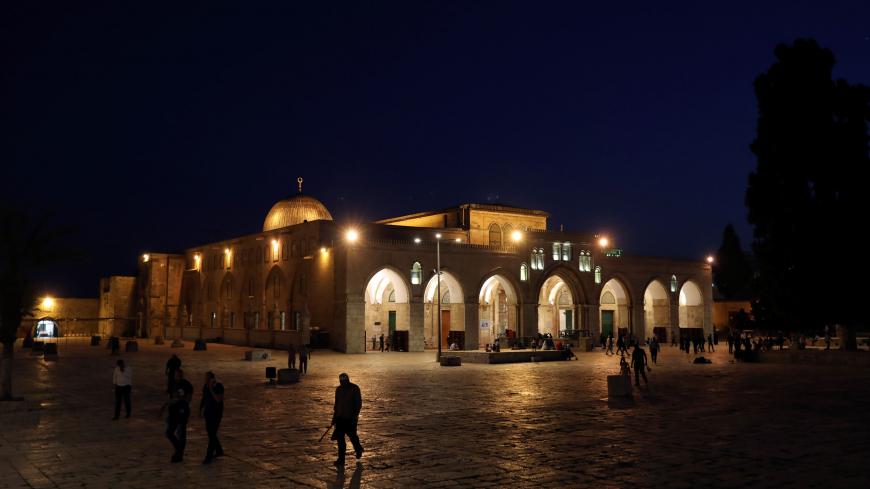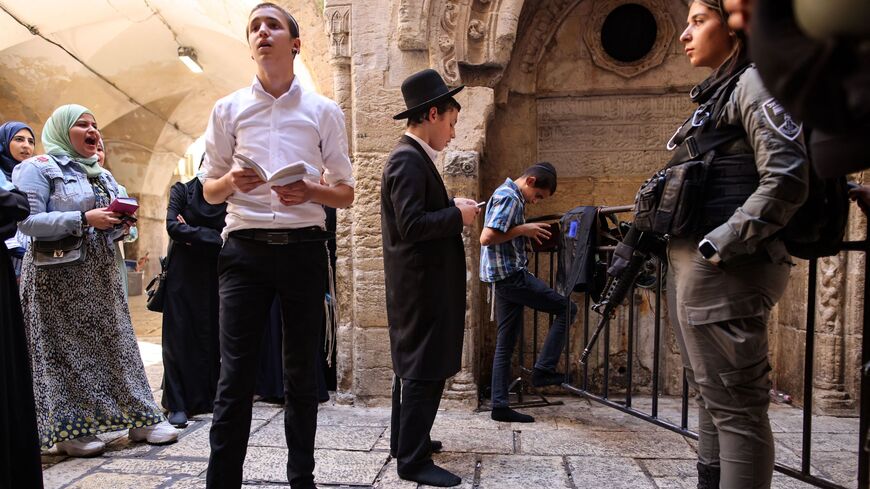![1207229346 JERUSALEM - MARCH 15: Muslims perform prayer outside the Al-Aqsa Mosque after the Islamic Waqf Department announced to close the enclosed prayer places as a precautionary measure to prevent the spread of the coronavirus (COVID-19) outbreak in Jerusalem on March 15, 2020. According to the statement, all prayers remain to be held in the [outdoor] courtyard and all doors will be open to worshipers. (Photo by Mostafa Alkharouf/Anadolu Agency via Getty Images)](/sites/default/files/styles/article_hero_medium/public/almpics/2020/03/GettyImages-1207229346.jpg/GettyImages-1207229346.jpg?h=a5ae579a&itok=wDcTln2s)
Al-Aqsa Mosque closed to Muslim worshippers to protect their lives
Subscribe for less than $9/month to access this story and all Al-Monitor reporting.
OR
Create an account for a 7-day trial to access this article and all of AL-Monitor.
By entering your email, you agree to receive ALM's daily newsletter and occasional marketing messages.















